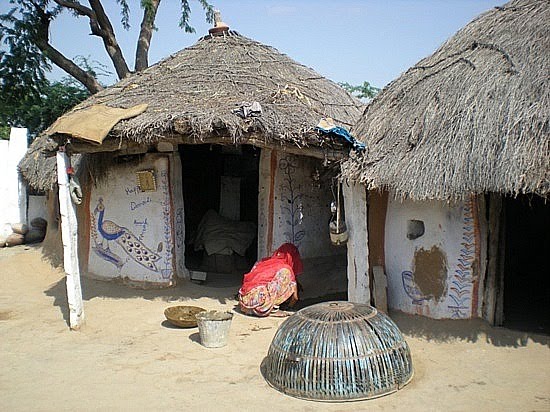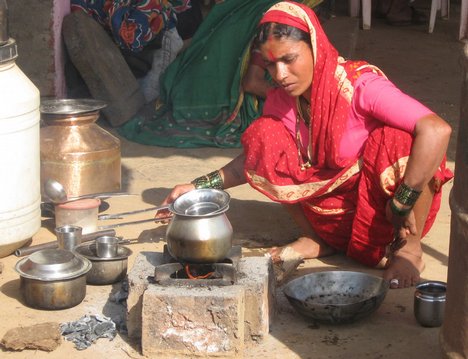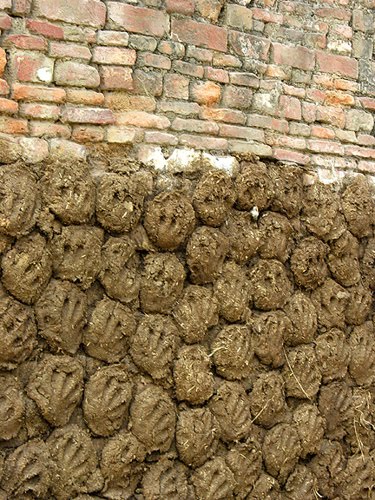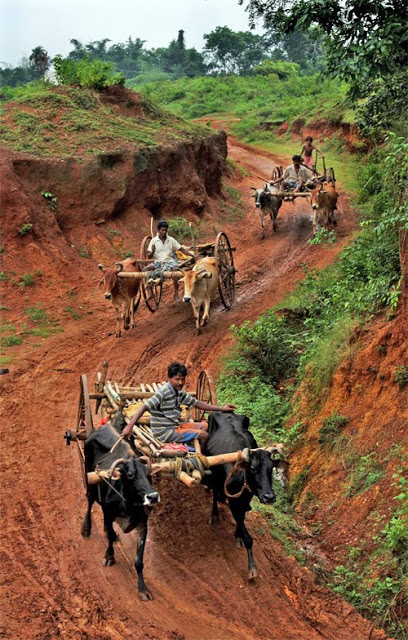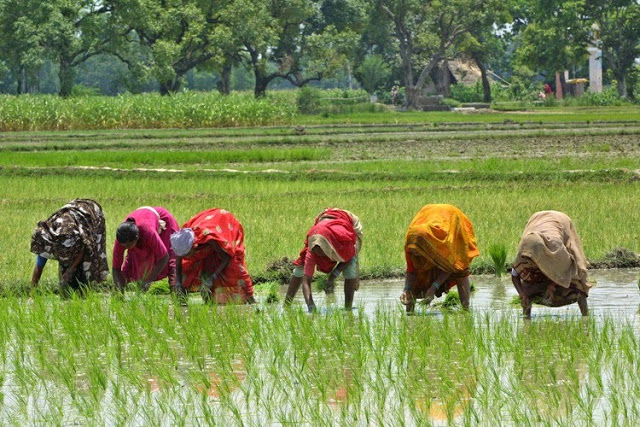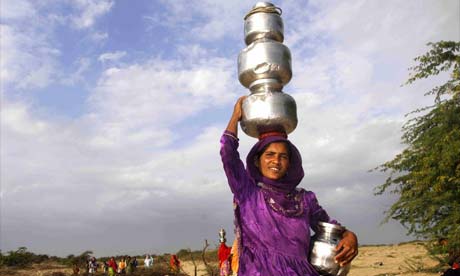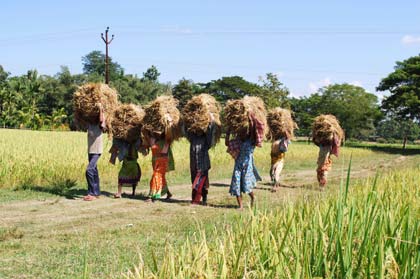…an Indian farmer.
India is an agricultural country. Despite the influx of the western world and India’s rising importance in the world, it still remains a vastly rural country, depending on its agricultural products. As India goes through economic reform, and the metropolitan cities are developing aggressively, there are over 600 million farmers being left out of this process of “development”.
Who is an Indian Farmer? It could be a man. It could a woman. And in some cases, even a child!
He wakes up in the wee hours of the morning after spending a night in here, sleeping on a mud floor, covered by a very threadbare sheet to protect him from the elements while he sleeps:
Food is prepared in sparse conditions, and eaten with great urgency so that they can get out to the fields early and work hard before the sun bears down on them, with intensifying heat as the day goes on.
The cow is an animal of sacred qualities but it is also one which provides the basic fuel for the cooking. The cow dung is picked up off the ground as soon as it leaves the body of the cow, and patted down on the sides of the walls of the mud hut they live in. During the day, the heat of the sun dries them up and makes them very stiff. These patted down cow pies are then taken off the wall, broken into pieces and inserted into the crevices of the mud stoves they use to cook ( as in the picture above – note the dried cow pie in the bottom left of the picture) their daily food.
Here is a pile of drying cow pies, soon to be used as fuel. These when lit are also a good deterrent for mosquitoes that generally tend to swarm these areas filled with stagnant waters in the fields. Of course, the smell of one of these burning is enough to make you say goodbye permanently to your abilities to breathe in deeply. But due to the very poor conditions that the farmers live in, this is the best fuel for them to use:
Once the food is prepared and eaten, the men go off to work. Which mode of transportation would you prefer? The one you have right now or this:
The men are not the only hard workers here. The women work alongside their men and they sometimes have their children work with them too! In a three-income household, you would think the farmers are rich, but it is quite the contrary…these hardworking farmers provide a country of close to 1 billion people their daily food, and yet they get very little of it. They are taken advantage of and exploited by money lenders, government regulations and middle men. They get very little to eat, their children have no access to school, good food or clean water, no health care whatsoever, and they continue to live in these squalid conditions, in a vicious cycle of poverty, being completely unable to break out of it.
Women farmers, bent over all day, standing in ankle-deep water, planting in the hot sun. And they do this every single day of their lives. Does it make you thankful for your job – in an air-conditioned office, desk, computer, phone, internet, ergonomic chair and you get to take a break on the weekends?
The basic necessities that we take for granted are so hard to come by: water & electricity. Often the government regulates when and for how long, villages get their electricity. This causes constant problems because they only have two hours of electricity. The government decides to run this electricity for two hours – but at night, so the fields that need the irrigation by pump water, can only be done by night. The farmer has worked a very long, hard day and now has to spend a good part of his night making sure his fields get irrigated or else he will lose his crops.
Women collecting water in the pots they then carry on their heads back to the huts to store it for use till the next time they get water, which could sometimes be two or three days:
In order to survive, sometimes it takes the whole family:
They live in what is considered horrible conditions by our standards of living, they eat whatever they can get after working so hard for it, they swat flies, fight mosquitoes, stand in open fields all day under the sun, with no shade or protection, they work the fields over with their animals, have their basic needs be governed and regulated, watch their children suffer with no education, no health care, no means of a future. They wake up every morning hoping against all hope that it would be a good day and that they would be able to live one more day to do it all over again, that one of them doesn’t succumb to some disease or gets ill and cannot work.
Some are even committing suicide due to the pressure of the money lenders, the lack of water to irrigate the fields and several other reasons. Being unable to see a way out, they kill themselves, leaving families in the the wake to deal with the debt that they will never in their lifetime be able to repay.
Micro-finance is a liberating thing for the villagers in these very rural parts of the world and it helps them build businesses that keep them off the fields ( at least, the women) and allows them to bring in some income and provide some basic needs for their families. It allows them to see the light in the eyes of their children who could now afford to attend a local school for a few hours instead of working in the fields with their parents.
There is still so much to be done and if you have the means to help in any way, seek out these opportunities, and do something for someone who has so little. It will bring you that peace you are looking for, that sens of being – just by offering a helping hand to those in need.
Have you done any good in the world today??

